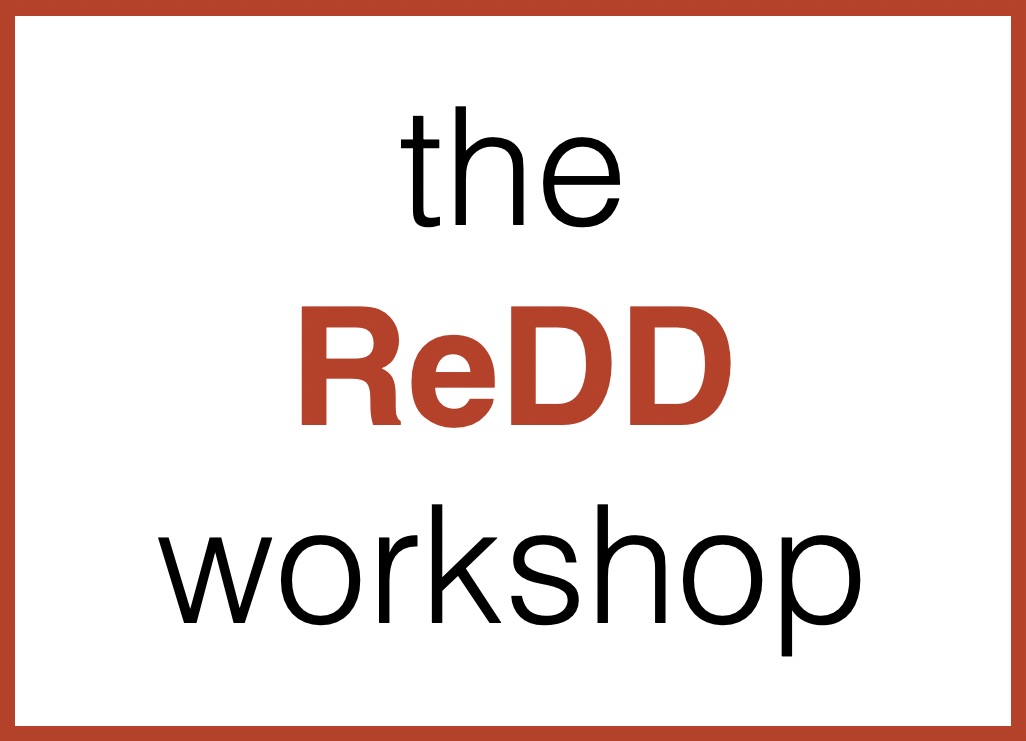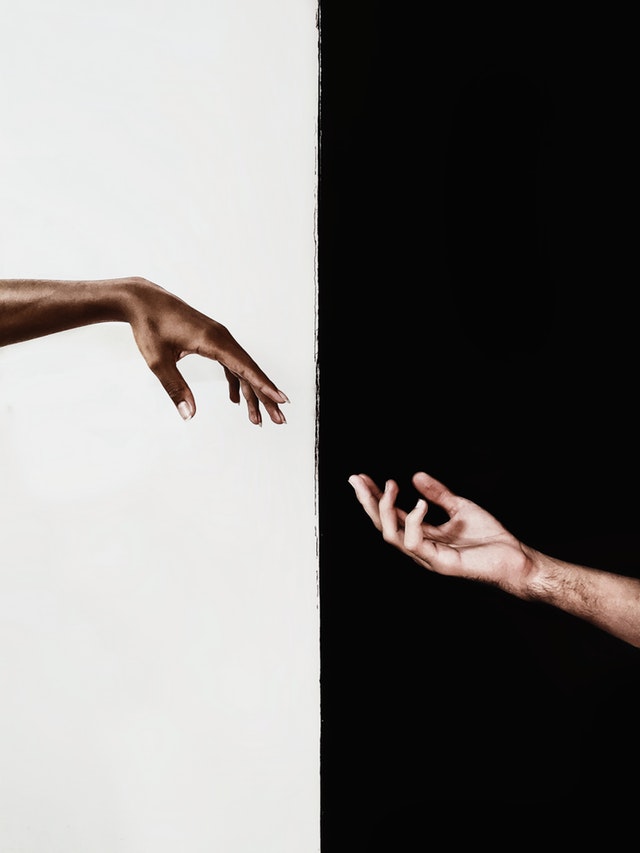
The ReDD Workshop: Supporting People in Regaining Control Over Digital Device Use [current]
Self-control struggles play a key role in negative effects of digital device use on well-being, such as problematic social media use. Students and staff in higher education, in particular, often struggle to get the benefits of digital connectivity without comprising their ability to be immersed in academic work. Together with the University of Oxford’s Counselling Service, I provide solutions via the ’Reduce Digital Distraction’ (ReDD) workshop. In these workshops, people reflect on their challenges and goals around digital device use, and self-experiment with a curated selection of digital self-control tools.
My collaborators for this project include Maureen Freed, former Deputy Head of Counselling at the University of Oxford, Petr Slovák, Kai Lukoff, Max Van Kleek, Sir Nigel Shadbolt, David Levy, Claudine Tinsman and Helene Willadsen.
“I finally felt I had the tools to control these urges”: Empowering Students to Achieve Their Device Use Goals With the Reduce Digital Distraction Workshop
Ulrik Lyngs, Kai Lukoff, Petr Slovak, Michael Inzlicht, Maureen Freed, Hannah Andrews, Claudine Tinsman, Laura Csuka, Lize Alberts, Victoria Oldemburgo de Mello, Guido Makransky, Kasper Hornbæk, Max Van Kleek, Nigel Shadbolt
CHI’24
Digital Self-Control in Danish High Schools: A Pilot Intervention Study
Ulrik Lyngs, Maya Møller-Jensen, Kai Lukorf, Helene Willadsen
NordiCHI
Understanding Personal Digital Self-Control Struggles in the ‘Reducing Digital Distraction’ Workshop
Ulrik Lyngs
DPhil thesis chapter
The ReDD Workshop: A Template for Supporting People in Regaining Control Over Digital Device Use
Ulrik Lyngs, Maureen Freed, Kai Lukoff, Petr Slovak, Max Van Kleek
CHI’20 Workshop
Ulysses in Cyberspace: Examining the Effectiveness of Digital Self-Control Strategies [current]
Laptops and smartphones let us do anything, anywhere. Yet, when everything is always available, many users get distracted by their devices and struggle with self-control. On app stores, an entire niche has emerged for ‘anti-distraction tools’ which claim to help people self-regulate by blocking distractions, tracking device use, or gamifying intended use. Which design features actually help users self-regulate their use of digital devices, and can theories of cognitive control from the behavioural neurosciences help us?
This was the focus of my PhD research, which I continue with numerous collaborators including Sir Nigel Shadbolt (my PhD supervisor), Kai Lukoff, Petr Slovák, Reuben Binns, Max Van Kleek, Jun Zhao, Michael Inzlicht, Laura Csuka, and Lize Alberts.
SwitchTube: A Proof-of-Concept System Introducing “Adaptable Commitment Interfaces” as a Tool for Digital Wellbeing
Kai Lukoff, Ulrik Lyngs, Himanshu Zade, Vera Liao, James Choi, Kaiyue Fan, Sean Munson, Alexis Hiniker
CHI’23
The Goldilocks Level of Support: Using User Reviews, Ratings, and Installation Numbers to Investigate Digital Self-Control Tools
Ulrik Lyngs, Kai Lukoff, Laura Csuka, Petr Slovák, Max Van Kleek, Nigel Shadbolt
IJHCS
Leveraging Self-Regulation Research When Designing for Digital Wellbeing
Ulrik Lyngs, Kai Lukoff
AVI’22 Workshop
Designing to Support Autonomy and Reduce Psychological Reactance in Digital Self-Control Tools
Kai Lukoff, Ulrik Lyngs, Lize Alberts
CHI’22 Workshop
How the Design of YouTube Influences User Sense of Agency
Kai Lukoff, Ulrik Lyngs, Himanshu Zade, Vera Liao, James Choi, Kaiyue Fan, Sean Munson, Alexis Hiniker
CHI’21
Ulysses in Cyberspace: Examining the Effectiveness of Design Patterns for Digital Self-Control
Ulrik Lyngs
DPhil thesis
“I Just Want to Hack Myself to Not Get Distracted”: Evaluating Design Interventions for Self-Control on Facebook
Ulrik Lyngs, Kai Lukoff, Petr Slovak, William Seymour, Helena Webb, Marina Jirotka, Jun Zhao, Max Van Kleek, Nigel Shadbolt
CHI’20
Self-Control in Cyberspace: Applying Dual Systems Theory to a Review of Digital Self-Control Tools
Ulrik Lyngs, Kai Lukoff, Petr Slovak, Reuben Binns, Adam Slack, Michael Inzlicht, Max Van Kleek, Nigel Shadbolt
CHI’19
Putting Self-Control at the Centre of Digital Wellbeing
Ulrik Lyngs
CHI’19 Workshop
So, Tell Me What Users Want, What They Really, Really Want!
Ulrik Lyngs, Reuben Binns, Max Van Kleek, Nigel Shadbolt
CHI’18 EA (alt.chi)
A Cognitive Design Space for Supporting Self-Regulation of ICT Use
Ulrik Lyngs
CHI’18 EA
‘It’s More Fun With My Phone’: A Replication Study of Cell Phone Presence and Task Performance
Ulrik Lyngs, Ryan McKay
CogSci’17
Curiosity, ICTs, and Attention Management
Ulrik Lyngs
CHI’17 Workshop

Religion: A Cultural Tool for Self-Regulation [past]
‘Self-control’ is the capacity to override our own inner states or responses. For example, we exercise self-control when we suppress a desire to eat junk food, or resist an urge to check Facebook when we should be writing a paper. As ’nudge’ theorists and advertisers have long known, however, our behavior and capacity for self-control is greatly influenced by our environment.
One ancient cultural tool to guide people’s behavior and self-control is religion. Moral norms of virtues and vices, rituals where people affirm their beliefs and reflect on their behavior, social structures such as gender segregation that reduces exposure to ‘temptations’ - all of these can be seen as culturally evolved tools for scaffolding self-regulation. My MA dissertation in the Study of Religion and Psychology from Aarhus University explored current evidence on, and models of, the relationship between religion and self-control, and was supervised by Uffe Schjødt.
What I Hate, That Do I: Religion as a Cultural Tool for Cognitive Control
Ulrik Lyngs
MA Thesis

Hearing in Colour: How Expectations Influence Visual Perception [past]
Research in the US has found that people see faces as darker if they categorise them as African American than if they categorise them as White American, even if the objective skin tone is identical. In other words, learned associations with a racial category can distort actual perception. In Brazil, however, anthropologists have long argued that race categories are very different from in the US.
In collaboration with Emma Cohen, Daniel Levin, Wall Hattori, and Martha Newson, I carried out a series of experimental studies in Natal, Brazil, to see whether the brightness distortion effect from race categories found in the US would replicate. In addition, we investigated whether racial associations from speech accent could similarly influence perceived skin tone.
Hearing in Colour: How Expectations Distort Perception of Skin Tone
Ulrik Lyngs, Emma Cohen, Wall Hattori, Martha Newson, Dan Levin
JEP:HPP